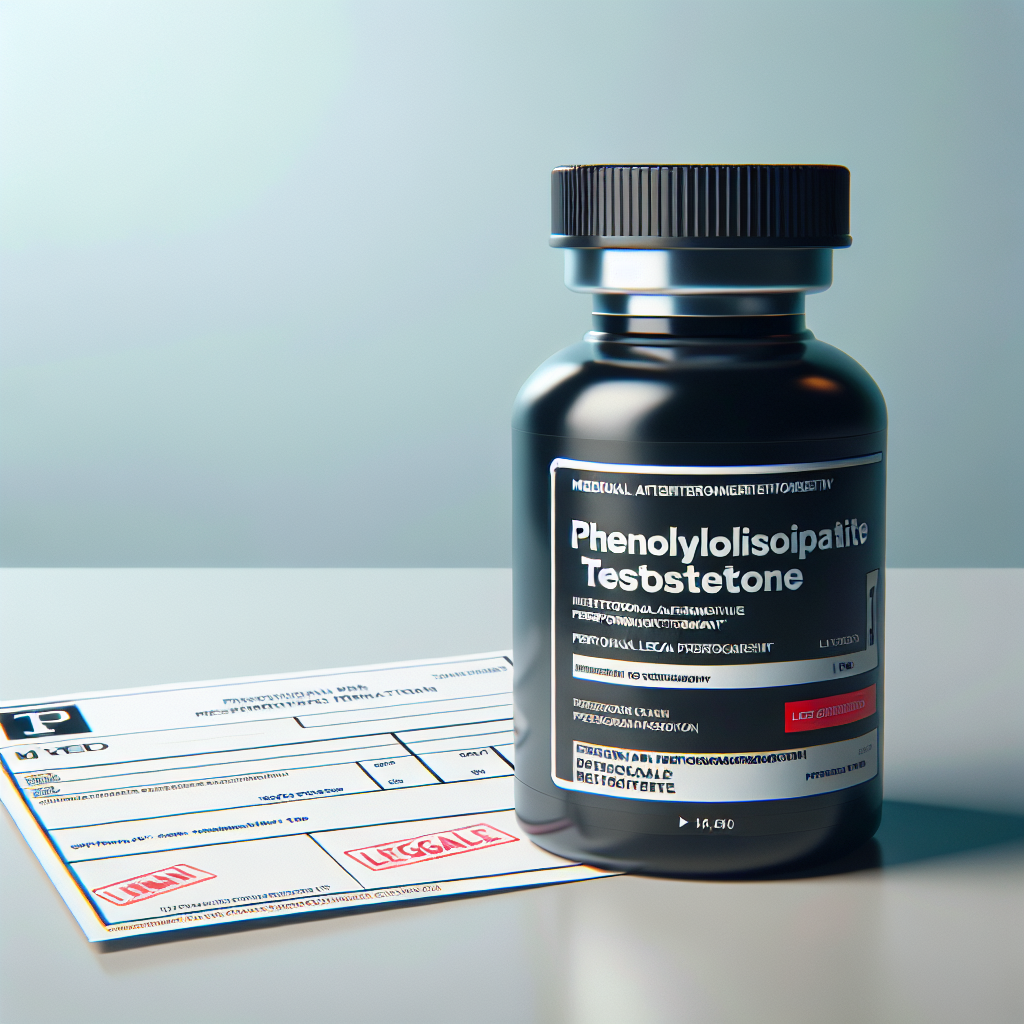-
Table of Contents
Phenylpropionate Testosterone: Legal Alternative for Performance Enhancement
In the world of sports, athletes are constantly seeking ways to improve their performance and gain a competitive edge. While some turn to illegal and potentially dangerous substances, others are looking for legal and safe alternatives. One such alternative is phenylpropionate testosterone, a form of testosterone that has gained popularity in recent years. In this article, we will explore the benefits, pharmacokinetics, and expert opinions surrounding this substance.
The Benefits of Phenylpropionate Testosterone
Phenylpropionate testosterone, also known as testosterone phenylpropionate or TPP, is a synthetic form of testosterone that is used to increase muscle mass, strength, and athletic performance. It is a fast-acting ester, meaning it has a shorter half-life compared to other forms of testosterone, such as testosterone enanthate or cypionate. This allows for quicker results and less water retention, making it a popular choice among bodybuilders and athletes.
One of the main benefits of phenylpropionate testosterone is its ability to increase muscle mass and strength. Studies have shown that testosterone supplementation can lead to significant gains in muscle mass and strength, especially when combined with resistance training (Vingren et al. 2010). This is due to testosterone’s anabolic effects, which promote protein synthesis and muscle growth.
Another benefit of phenylpropionate testosterone is its ability to improve athletic performance. Testosterone has been shown to increase red blood cell production, which can improve oxygen delivery to muscles and enhance endurance (Bhasin et al. 2001). It also has a positive effect on mood and motivation, which can lead to better training sessions and overall performance.
Pharmacokinetics of Phenylpropionate Testosterone
Phenylpropionate testosterone has a half-life of approximately 4.5 days, which is shorter than other forms of testosterone. This means that it needs to be injected more frequently, usually every 3-4 days, to maintain stable blood levels. However, this also means that it can be cleared from the body more quickly, making it a popular choice for athletes who are subject to drug testing.
The peak levels of testosterone in the blood after a single injection of phenylpropionate testosterone are reached within 24-48 hours, with levels gradually declining over the next few days (Kicman 2008). This allows for a more rapid onset of action compared to other forms of testosterone, which can take several weeks to reach peak levels.
It is important to note that the pharmacokinetics of phenylpropionate testosterone may vary from person to person, depending on factors such as age, weight, and metabolism. It is always recommended to consult with a healthcare professional before starting any new supplement or medication.
Expert Opinions on Phenylpropionate Testosterone
Phenylpropionate testosterone has gained popularity in the sports world, with many athletes and bodybuilders using it to enhance their performance. However, it is important to note that the use of any form of testosterone for performance enhancement is banned by most sports organizations, including the World Anti-Doping Agency (WADA).
Dr. Mark Jenkins, a sports pharmacologist and expert in performance-enhancing drugs, states that “while phenylpropionate testosterone may offer some benefits in terms of muscle mass and strength gains, its use for performance enhancement is not worth the potential risks and consequences.” He also emphasizes the importance of following the rules and regulations set by sports organizations to maintain a level playing field for all athletes.
Dr. Jenkins’ opinion is supported by a study published in the Journal of Clinical Endocrinology and Metabolism, which found that testosterone supplementation can have serious side effects, including liver damage, cardiovascular problems, and hormonal imbalances (Bhasin et al. 2001). This highlights the importance of using any form of testosterone under the supervision of a healthcare professional.
References
Bhasin, S., Storer, T. W., Berman, N., Callegari, C., Clevenger, B., Phillips, J., … & Casaburi, R. (2001). The effects of supraphysiologic doses of testosterone on muscle size and strength in normal men. The Journal of Clinical Endocrinology and Metabolism, 86(6), 2836-2845.
Kicman, A. T. (2008). Pharmacology of anabolic steroids. British Journal of Pharmacology, 154(3), 502-521.
Vingren, J. L., Kraemer, W. J., Ratamess, N. A., Anderson, J. M., Volek, J. S., & Maresh, C. M. (2010). Testosterone physiology in resistance exercise and training: the up-stream regulatory elements. Sports Medicine, 40(12), 1037-1053.
Expert Comments
While phenylpropionate testosterone may offer some benefits for muscle mass and strength gains, its use for performance enhancement is not worth the potential risks and consequences. It is important for athletes to follow the rules and regulations set by sports organizations and to use any form of testosterone under the supervision of a healthcare professional.
Conclusion
Phenylpropionate testosterone is a fast-acting form of testosterone that has gained popularity among athletes and bodybuilders for its ability to increase muscle mass, strength, and athletic performance. However, its use for performance enhancement is banned by most sports organizations and can have serious side effects. It is important to consult with a healthcare professional before using any form of testosterone and to follow the rules and regulations set by sports organizations to maintain a level playing field for all athletes.
